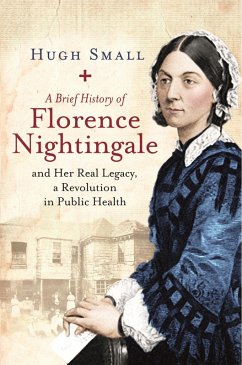James Le Fanu, Daily Telegraph
Florence Nightingale (1820-1910) is best known as a reformer of hospital nursing during and after the Crimean War, but many feel that her nursing reputation has been overstated.
A Brief History of Florence Nightingale tells the story of the sanitary disaster in her wartime hospital and why the government covered it up against her wishes. After the war she worked to put the lessons of the tragedy to good use to reduce the very high mortality from epidemic disease in the civilian population at home. She did this by persuading Parliament in 1872 to pass laws which required landlords to improve sanitation in working-class homes, and to give local authorities rather than central government the power to enforce the laws. Life expectancy increased dramatically as a result, and it was this peacetime civilian public health reform rather than her wartime hospital nursing record that established Nightingale's reputation in her lifetime.
After her death the wartime image became popular again as a means of recruiting hospital nurses and her other achievements were almost forgotten. Today, with nursing's new emphasis on 'primary' care and prevention outside hospitals, Nightingale's focus on public health achievements makes her an increasingly relevant figure.
Dieser Download kann aus rechtlichen Gründen nur mit Rechnungsadresse in A, B, BG, CY, CZ, D, DK, EW, E, FIN, F, GR, HR, H, IRL, I, LT, L, LR, M, NL, PL, P, R, S, SLO, SK ausgeliefert werden.









